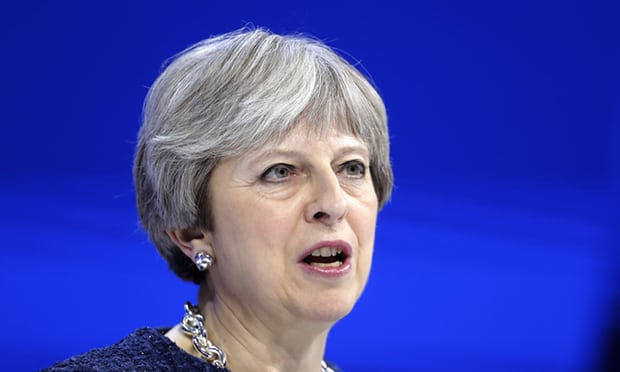She will ask the House of Commons to pass her Brexit blueprint, or EU Withdrawal Bill, which will prepare Britain for a divorce next March to end its more than 40-year-old trading and political partnership with the rest of Europe.
May, who leads a minority government, won a similar vote last week in the lower house but only after offering a compromise with the rebels, which then fell through. The upper chamber, the House of Lords, then backed an amendment to the law on Monday that would give parliament a bigger say.
She risks defeat if just a handful of Conservatives vote against her proposal — to offer parliament a statement setting out what she will do if she fails to negotiate an agreement with the EU, or if lawmakers reject any deal she returns with.
If she does lose, it would all but eliminate May’s threat of walking away from talks if negotiators fail to win what she calls a “good deal”, and may embolden some in parliament to push for keeping the closest possible ties with the bloc.
May argues that her first responsibility is to ensure that Britain leaves the EU next March, to honour the outcome of a referendum in 2016; pro-EU Conservatives say May’s proposal would not give parliament any control over the terms of departure.
They will back a competing amendment by Conservative rebel Dominic Grieve, which he says will steer Britain away from the “extraordinary crisis” of leaving without a deal.
The main opposition Labour Party urged lawmakers to reject the government’s proposal at a vote due to take place after 1330 GMT, and support Grieve’s amendment.
“LAST CHANCE”
If there are any changes to the bill, the unelected upper house will consider them later on Wednesday. Once both houses are in agreement, the bill is essentially passed and only needs a rubber stamp before it becomes law.
“This is the last chance for parliament to secure a meaningful vote and protect jobs and the economy from a no-deal Brexit,” said Keir Starmer, Labour’s Brexit policy chief.
“This vote is not about stopping Brexit or tying the hands of UK negotiators. It is about making sure parliament has a truly meaningful say on the terms of the final Brexit deal.”
The vote is a taste of what is to come for May. She needs to drive several bills through parliament preparing Britain for life outside the bloc, and some lawmakers may flex their muscles on other issues, such as future trade arrangements.
After losing her majority in an ill-judged election last year, May has struggled to get laws through parliament, often preferring to delay votes to avoid the risk of defeat.
On Tuesday, Grieve said he did not “want to collapse the government at all”.
Asked what would happen if the government lost Wednesday’s vote, pro-EU Conservative lawmaker Phillip Lee, who resigned his ministerial post over Brexit, told BBC radio: “Fundamentally, this is not about the government, this is about parliament.”
Lee said he did not understand the government’s argument that Grieve’s proposal would tie its hands in the EU talks.
“As far as I’m concerned, this gives us a framework for parliament to follow in the unlikely event that a crisis ensues and there is no deal,” he said.
May’s spokesman has said she will not back down. Andrew Bridgen, a pro-Brexit Conservative, said it was now time to have “a fight we’ve got to have”.
More about: #Theresa-May
















































